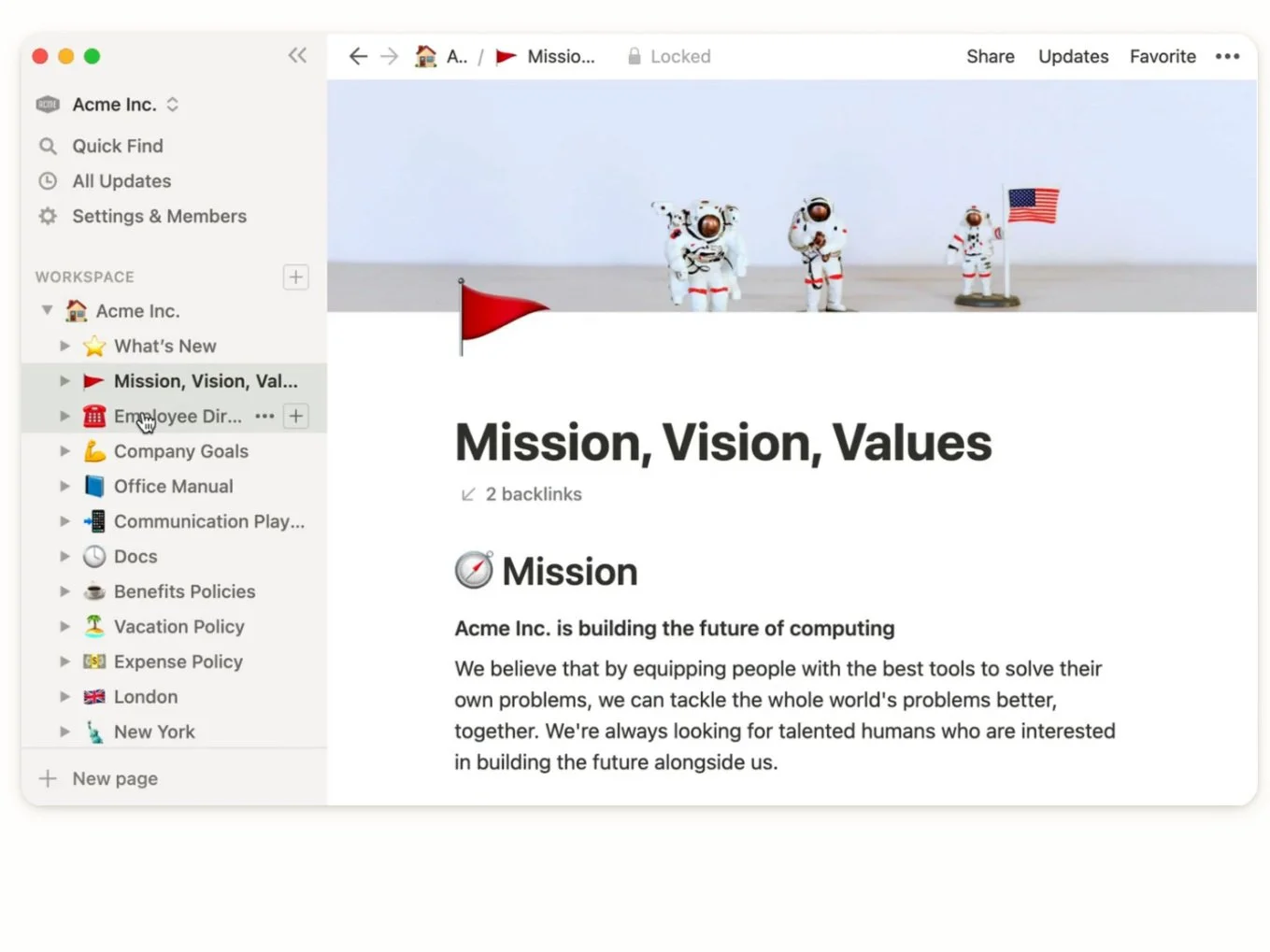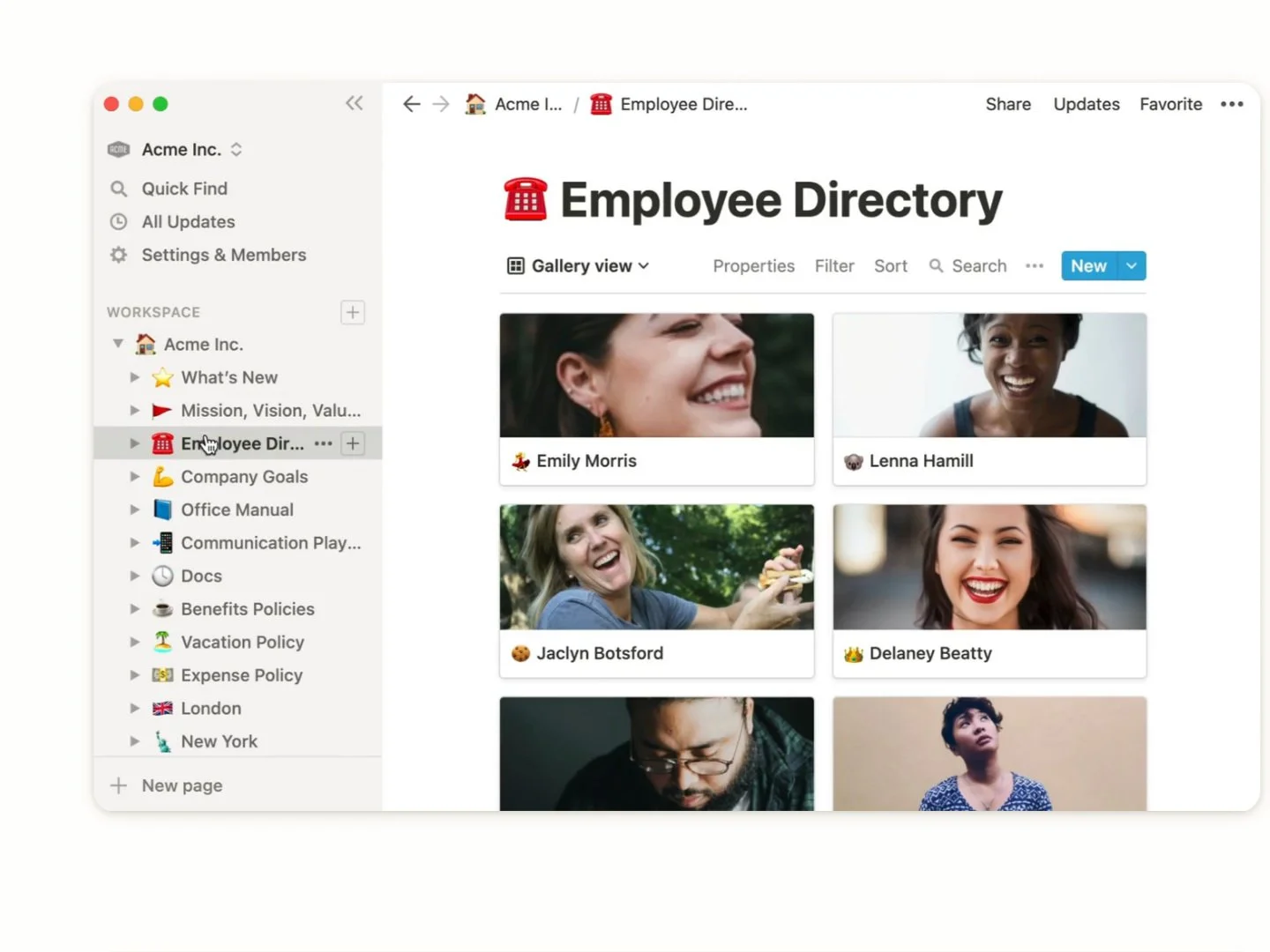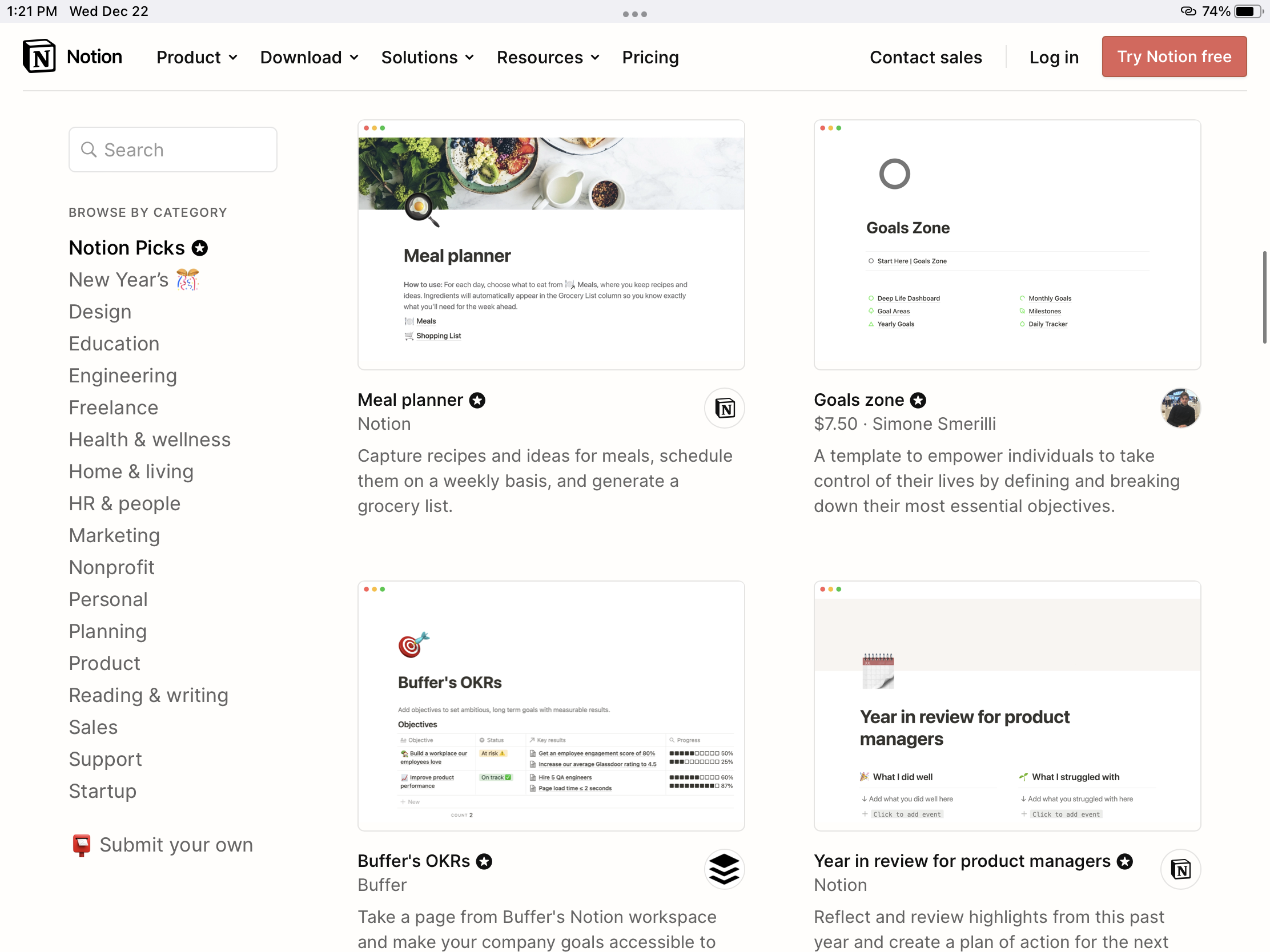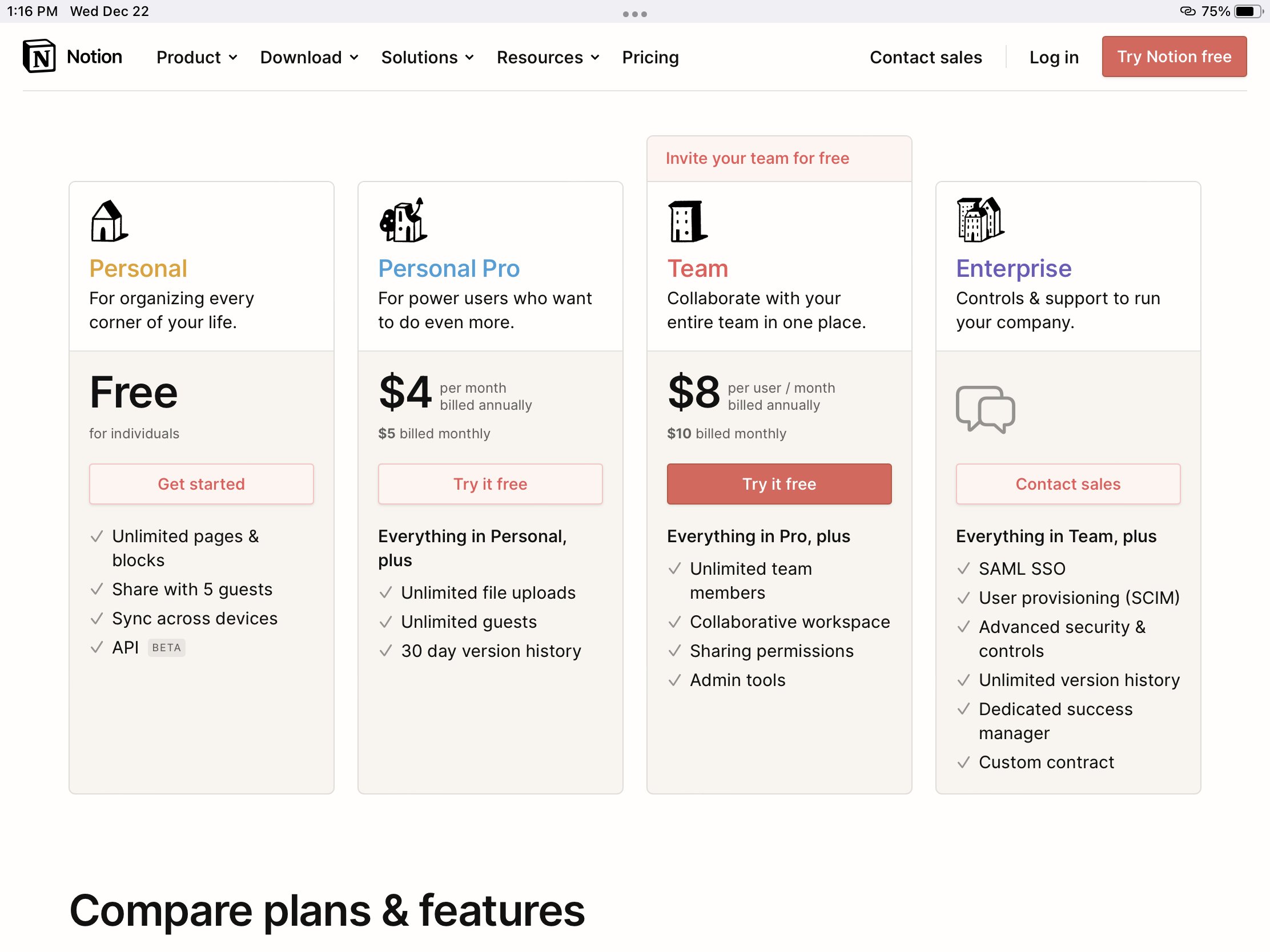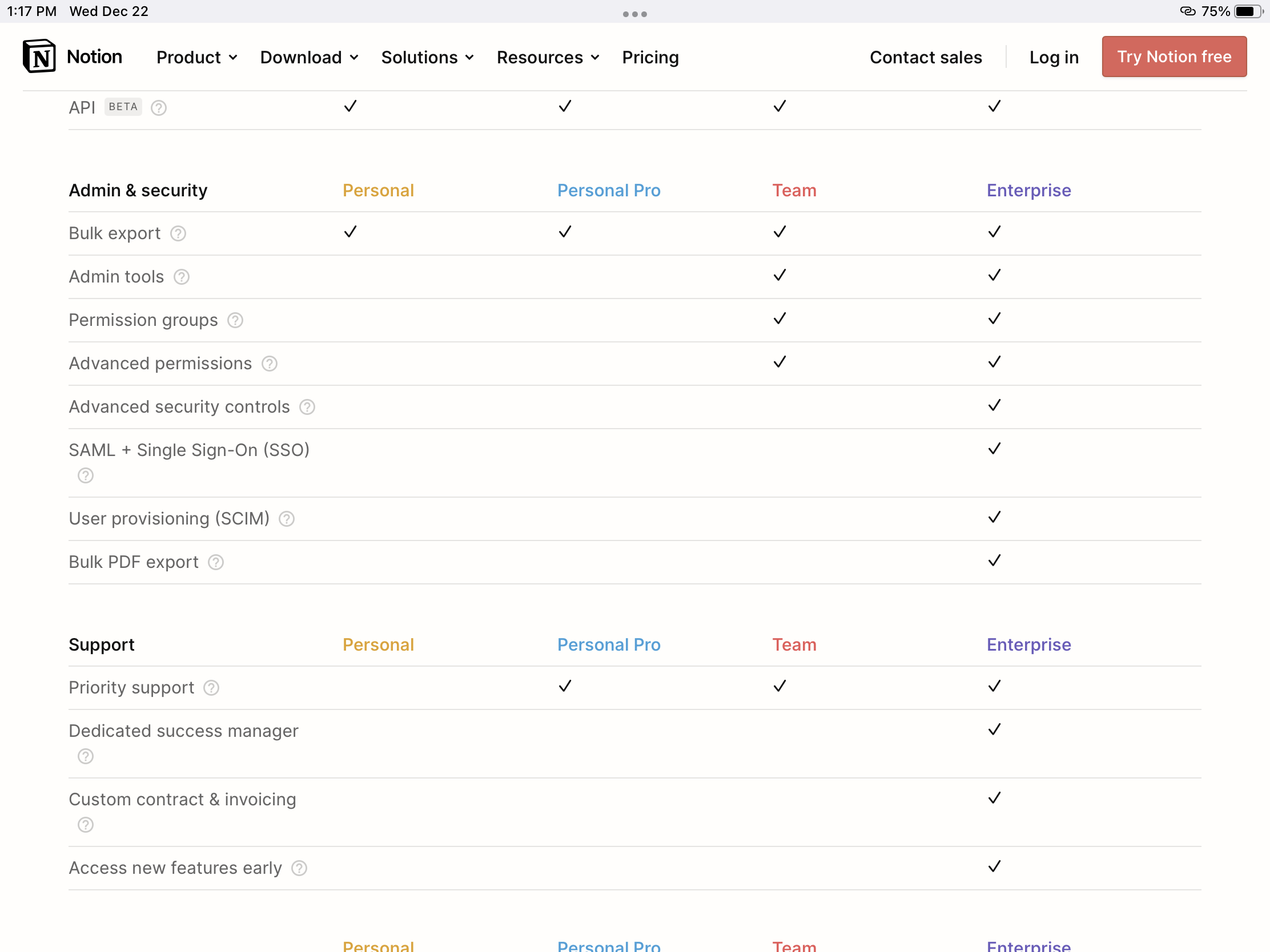The web is overflowing with solutions for our personal and business productivity. As a busy professional and tech early adopter, many productivity tools have entered and exited my hard drives and operating systems over time. The good news from the pandemic (if you want to look at the silver lining) is a focus on improving personal and business project management tools. Of course, the key is to understand WHY you are using these tools and for what end. It is important to recognize that there is no one tool for every person or every business, but there is a newer solution that merit evaluation as interesting options for those who want to have a one-place-stop for note-taking, knowledge management, as well project and task management for either personal or professional use: Notion. Notion promised a new view on project management when it was released, but recent improvements make it an emerging stand-out for a standalone solution. There are few others in the multi-solution space, but Notion offers enterprise and personal solutions that allow an individual to create a one-solution model for home and work. Additionally, it operates across all platforms (mobile / desktop) and operating systems, with pricing sensitivity to those starting a business or running an operation for social good.
NOTION
Notion Labs was founded in 2012 with the first software launch in 2016. The system operates on a combination of databases and markdown pages providing a different approach to business or life management that stitches together knowledge work with project or task-based labor. It gained traction in 2019 prior to the pandemic but took a leap ahead in 2020 as distributed work forces wanted a one-stop-solution instead of a ‘duct-taped’ solutions of calendars, documents, notes, tasks and project management. Notion provides space for interconnected wikis, notes, tasks, and documents. As a web-focused environment that is text and object-oriented, it stands out as an option for creative processes. It is noteworthy that one of their corporate users is Pixar. Like other project management solutions, it allows for lists, boards, or table views of content or tasks. Due to its wiki style, it also provides a fully distributed one-stop business internal solution with a menu bar that can be project or product oriented or company oriented, noting mission, values, and vision as lead content.
Figure 1. Menu list highlighting knowledge sharing with Mission Statement sample. Source: Notion.so
Other solutions include tools for human resources that can be shared with a company like an employee list.
Figure 2. Employee Director Example. Source: Notion.so
Critical to its emerging success is its library of templates that are provided free or developed by users and available for a fee.
Figure 3. Sample templates for individuals or business. Source: Notion.so
For the individual
Notion offers a free option or a low-cost paid version that provides highly flexible searchable databases for tracking personal libraries for books, tv, movies, recipes, or wines — whatever you like to keep track of in your life. It also offers personal planning tools whether you're renovating your home, planning a vacation or just sorting your day. Notion offers both a planning tool and life archival system that can even share with other members of your family or friends.
For the business:
It’s strength is the one-stop knowledge sharing for staff transparency while creating spaces for project or product management. Creating an exhibit — layout the project roadmap, create and assign tasks, and attach related information or links.
Pros / Cons = Context
The most notable quality of Notion is its flexibility, in many ways offering a blank slate of opportunity and customized structure. A blank slate system is both a pro and a con. For those looking for a plug and play solution, some of its templates may be just what you are looking for, or it may not match immediate needs and become too cumbersome quickly. For an entrepreneur or emerging company, it allows for a place to start creating a knowledge system that pulls everything together. Yet for a large or complex existing enterprise, it could not immediately replace technology ecosystems, but could serve as a strong solution to replace existing systems and structures perhaps for a specific part of business (exhibition planning, production planning, etc).
Pricing
While the individual or small business might appreciate the breadth of available tools all for free, it doesn’t scale up easily for small businesses that might need a few, maybe only 10 - 15 users, at the free level (like Asana’s project management work). However, it does offer 50% off pricing tier for nonprofits and students / educators can access personal pro for free.
Figure 4. Pricing Schedule as of December 2021. Source: Notion.so
Technology considerations
It is still maturing with respect to security, with authentication systems available for enterprise users only. And, if you want to create a seamless communication and content solution, a Zapier or IFTTT push from Slack or a similar messaging solution would need to be integrated.
Figure 5. Admin, Security and Support provided by pricing tier. Source: Notion.so
Takeaway
Notion allows for a free flow of thought in a wiki combined with a detailed framework of databases offering a fantastic solution for the creative sector, from artists to museums or performing arts organizations, who want to archive their work while planning forward. It works similarly for an individual who wants to create home projects, life organizing or digital scrapbooking.
If you or your organization is tired of going to multiple solutions for a project or business solution, check out Notion. Speak to one of their consultants and see if it might be a new solution for you that can, truly, simplify your digital work or life.


